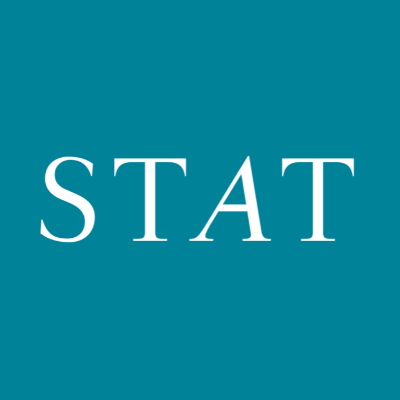 Stat (News) Article Rating
Stat (News) Article RatingSupreme Court strikes down use of affirmative action, a blow to efforts to diversify medical schools
- Bias Rating
6% Center
- Reliability
100% ReliableExcellent
- Policy Leaning
50% Medium Conservative
- Politician Portrayal
12% Negative
Continue For Free
Create your free account to see the in-depth bias analytics and more.
Continue
Continue
By creating an account, you agree to our Terms and Privacy Policy, and subscribe to email updates. Already a member: Log inBias Score Analysis
The A.I. bias rating includes policy and politician portrayal leanings based on the author’s tone found in the article using machine learning. Bias scores are on a scale of -100% to 100% with higher negative scores being more liberal and higher positive scores being more conservative, and 0% being neutral.
Sentiments
N/A
- Liberal
- Conservative
| Sentence | Sentiment | Bias |
|---|---|---|
Unlock this feature by upgrading to the Pro plan. | ||
Reliability Score Analysis
Policy Leaning Analysis
Politician Portrayal Analysis
Bias Meter
Extremely
Liberal
Very
Liberal
Moderately
Liberal
Somewhat Liberal
Center
Somewhat Conservative
Moderately
Conservative
Very
Conservative
Extremely
Conservative
-100%
Liberal
100%
Conservative

Contributing sentiments towards policy:
59% :Previous court decisions have upheld the use of affirmative action.52% :Polls show that 69% of Asian Americans favor affirmative action and at least one study showed that Asian Americans are likely to benefit, not suffer, when race is used as a factor in admissions decisions at highly selective colleges.
52% : Earlier this summer, the American College of Medical Schools joined 14 other health care education groups to file an amicus brief with the Supreme Court arguing strenuously in favor of affirmative action for medical schools as a national health care imperative.
51% : If Native physicians are less than one percentage point of the physician workforce with affirmative action in place, imagine how much more marginalized we might become without affirmative action."
50% : "Efforts to do away with affirmative action undermine decades of progress in creating a diverse physician workforce and will reverse gains made in the battle against health disparities," Jesse M. Ehrenfeld, president of the American Medical Association, said in a statement earlier this week.
45% : Meanwhile, a recent CBS poll found that while a majority of Americans say they thought affirmative action should continue, 70% said it should not be a factor in college admissions.)
44% :Students for Fair Admissions argues that affirmative action is "unfair, unnecessary and unconstitutional" and that a student's race should neither harm nor help their ability to gain entrance to a college.
44% : The use of Asian Americans who are held up as proof that hard work leads to success in American and that no assistance like affirmative action is needed has "been weaponized to delegitimize critiques of the U.S. as a white supremacist and anti-Black society," Eugin Park, an assistant professor at Stanford's Graduate School of Education, wrote in an analysis earlier this week.
43% : "If Native physicians are less than one percentage point of the physician workforce with affirmative action in place, imagine how much more marginalized we might become without affirmative action.""American Indian and Alaska Native physicians are less than a percent of the physician workforce, many fold lower than our 3% of the total US population.
40% : Overturning decades of precedent, the U.S. Supreme Court on Thursday struck down the use of affirmative action, ruling that it is unconstitutional for colleges, universities -- and professional schools for law, medicine, and nursing -- to consider race as one factor in deciding who they will admit.
36% : Unlike previous cases against affirmative action, which centered on white students who argued they had not been treated fairly in the admissions process, the two new cases were brought on behalf of Asian American students, with the claim that their admissions chances are harmed by affirmative action policies.
*Our bias meter rating uses data science including sentiment analysis, machine learning and our proprietary algorithm for determining biases in news articles. Bias scores are on a scale of -100% to 100% with higher negative scores being more liberal and higher positive scores being more conservative, and 0% being neutral. The rating is an independent analysis and is not affiliated nor sponsored by the news source or any other organization.





















